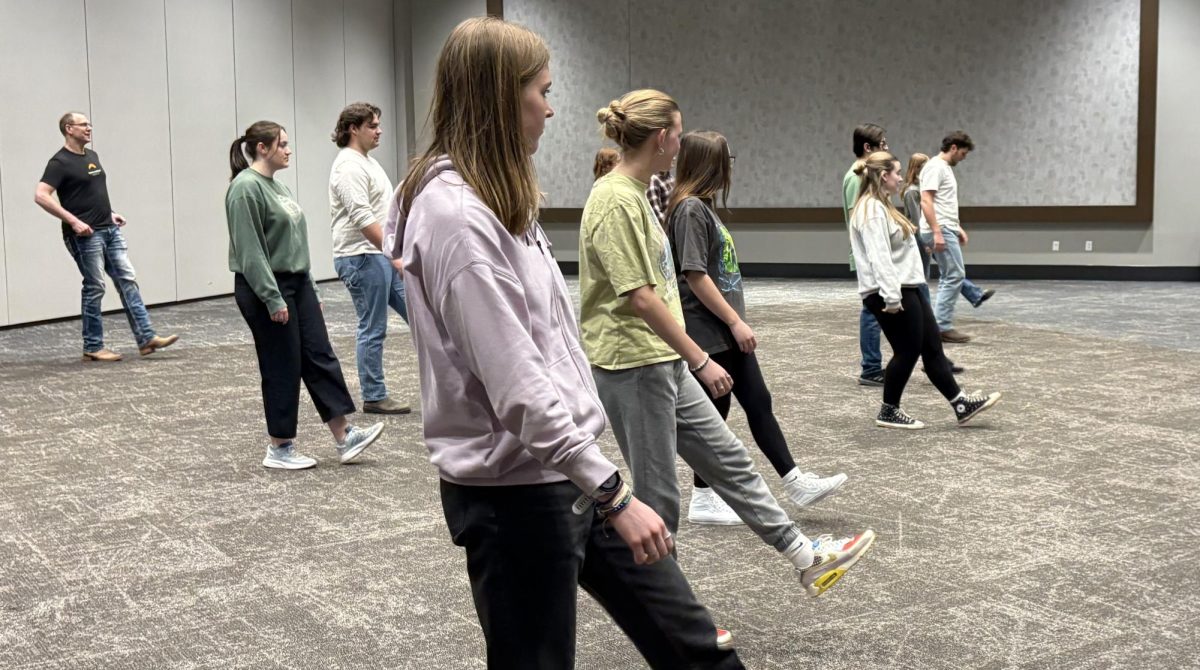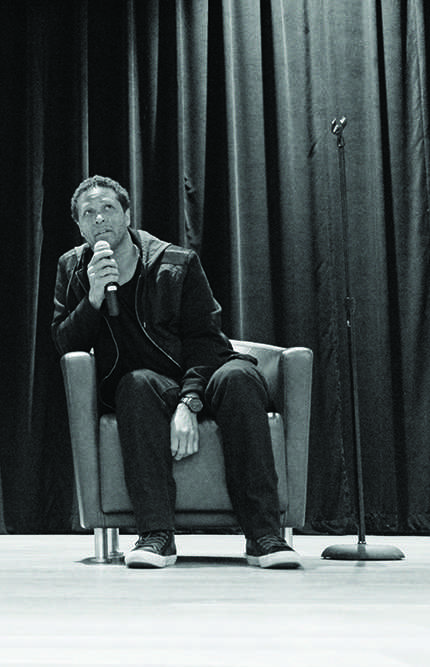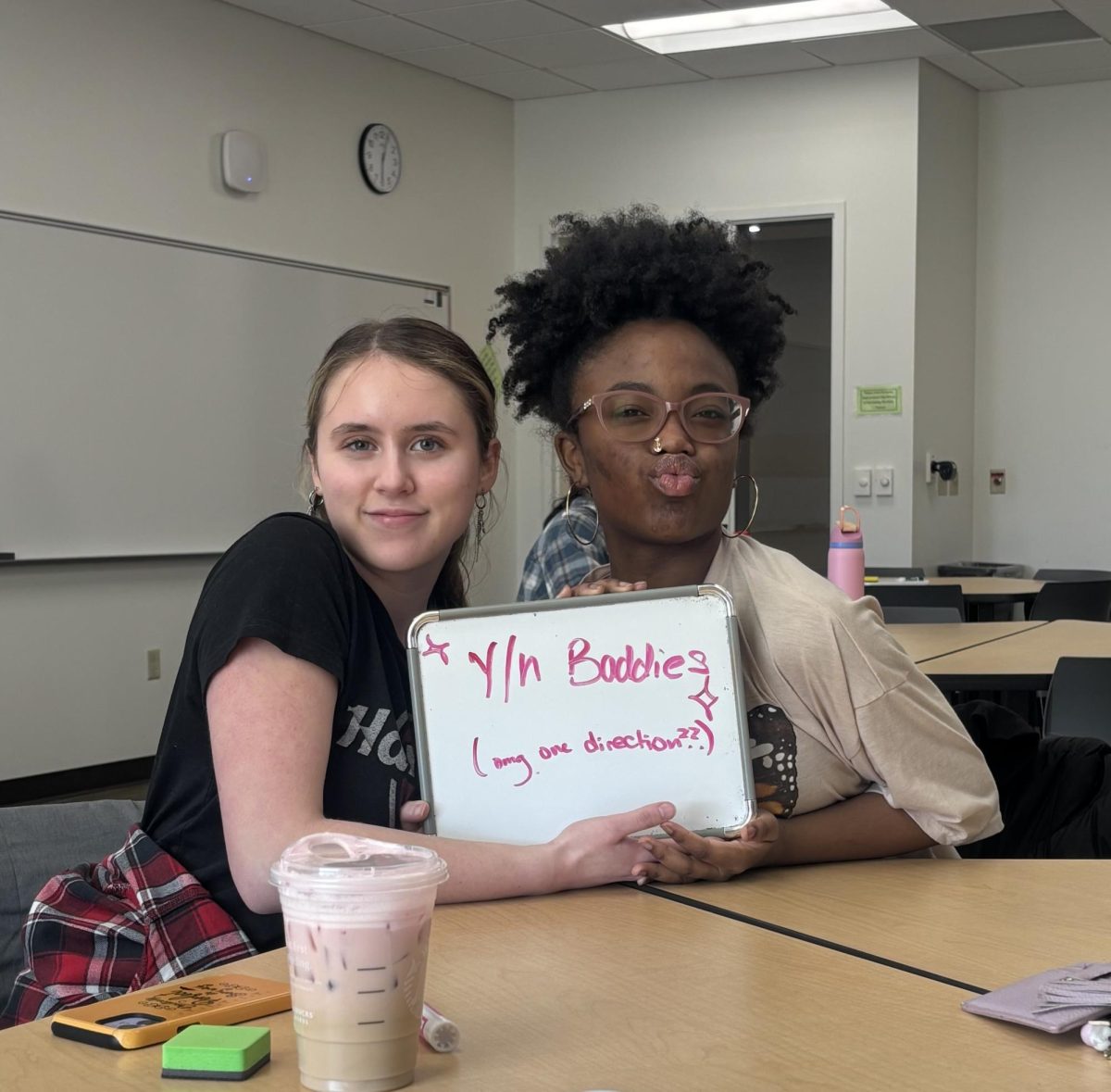Award winning stand-up comedian, actor and screenwriter Kevin Avery, widely known for his contributions to HBO’s satirical political commentary show “Last Week Tonight with John Oliver,” spoke on campus Monday evening in Jamrich 1100 as a Platform Personalities presentation.
After Avery’s brief introduction, the event consisted mainly of a question and answer time, with audience-submitted questions moderated by NMU political science professor Steve Nelson. It ranged from less serious matters like giving high fives to audience members (which Avery gladly obliged to) to graver matters, like discussing Avery’s thoughts on current events, especially sexual harassment and the future of
Hollywood.
“The role in comedy, as with anything, is to bring [harassment] out to the forefront and point to it, the absurdity of it, [and] to point out what’s wrong with this,” Avery said. “‘Why is this happening? Why are we allowing this to happen?’”
Avery also discussed lessons he’s learned during his career, working with comedians like Oliver and Chris Rock, as he composed skits and jokes for one TV show after another, moving from gig to gig as opportunities arose and as shows he worked for were canceled.
“Your first writing job, you have two jobs: Do all the work you can for the show, and your second job is finding your next job,” Avery said. “Surround yourself with the best people because hanging out with them, you can learn from the best. And if you’re good at something, do the hell out of it at that job because it’s going to stand out.”
Although Avery no longer writes jokes for Oliver, he said he learned a lot and enjoyed his time on “Last Week Tonight.” Avery currently writes for “The Jim Jefferies Show” and “The New Negroes” on Comedy Central.
Avery said race issues aren’t a big part of his usual comedy routine, though racial stereotypes do make occasional appearances in his humor. His short film “Thugs: The Musical,” which he screened for the audience after the Q&A, is centered around satirizing the stereotypical black gangster persona. In the film, African American characters are actors who are upset that they are not considered “black enough” to play thug roles, so they organize their own musical about urban gangster life.
Satire can be used to bring heavy issues, like racial stereotypes, into public discussion, he said.
“You have to make it OK to talk about it,” Avery explained. “It can’t be this thing that ‘Oh, it’s sort of a touchy subject.’ You have to put it out there and talk about it, laugh about it and then learn from it. I think that’s the most important thing.”


























